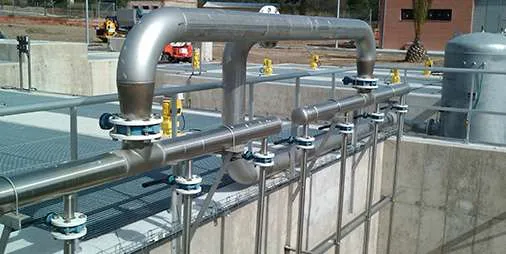
Wastewater Treatment Manufacturer
The Critical Role of Wastewater Treatment Manufacturers in Sustainable Waste Management
Wastewater treatment is an essential process in modern society, impacting everything from public health to environmental conservation. As urban populations grow and industrial activities expand, the need for efficient and effective wastewater management systems has never been more pressing. This article explores the role, technology, and innovations offered by wastewater treatment manufacturers, providing valuable insights for industry professionals and policymakers.
Understanding Wastewater Treatment: The Need for Effective Solutions
The Importance of Wastewater Treatment
According to the United Nations, approximately 2 billion people live in water-stressed countries, compounding the need for efficient wastewater management. Untreated or inadequately treated wastewater poses significant risks, including waterborne diseases and environmental degradation. From a financial perspective, the World Bank estimates that the economic costs of poor sanitation can reach up to $260 billion annually.
Key Challenges in Wastewater Management
- Pollution Control: Contaminants in wastewater—such as pathogens, heavy metals, and organic matter—require advanced treatment technologies.
- Regulatory Compliance: Regulatory frameworks, like the Clean Water Act in the U.S., mandate stringent water quality standards.
- Resource Recovery: New paradigms in wastewater treatment emphasize not just pollution control but also resource recovery, which includes energy and nutrient reclamation.
The Landscape of Wastewater Treatment Manufacturers
Leading Players in the Industry
The wastewater treatment market is diverse, with several companies leading the charge in technological innovation. According to a recent market analysis by Market Research Future, the global wastewater treatment technologies market is expected to reach $263 billion by 2025, indicating robust growth. Key players include:
- Veolia: A global leader in optimized resource management, Veolia provides extensive wastewater treatment solutions with a focus on sustainable practices.
- SUEZ: This multinational utility company emphasizes cutting-edge wastewater treatment technologies that integrate artificial intelligence and data analytics.
- Xylem: Known for its innovative pumping and treatment systems, Xylem focuses on reducing the environmental footprint of wastewater treatment processes.
Innovations Shaping the Future
Recent advancements in wastewater treatment technologies demonstrate the industry’s commitment to sustainability. Notable developments include:
- Membrane Bioreactors (MBR): Combining biological treatment with membrane filtration, MBR systems are highly efficient in removing organic matter and pathogens, yielding high-quality effluent while consuming less space.
- Biogas Production Systems: As emphasized in a study published in Environmental Science & Technology, integrating anaerobic digestion can recover energy, transforming wastewater into biogas, which can power treatment plants.
Pain Points in Wastewater Treatment and Innovative Solutions
Addressing Common Challenges
-
High Operational Costs: Energy-intensive treatment processes and maintenance requirements can lead to ballooning operational expenses.
- Solution: Advanced controls and automation can optimize energy usage. For instance, the use of smart sensors can detect system inefficiencies in real time, reducing costs by up to 30%.
-
Waste Sludge Management: The disposal of biosolids presents environmental and logistical challenges.
- Solution: Innovations like thermal hydrolysis can reduce sludge volume by 30%, making disposal more manageable while recovering energy.
- Public Perception and Acceptance: The "yuck" factor associated with wastewater often leads to public resistance against treatment plants.
- Solution: Engaging communities through transparency and education, combined with aesthetic improvements to facilities, can enhance acceptance.
Future Trends in Wastewater Treatment
Towards Resource Recovery and Circular Economy
Research published in leading environmental engineering journals indicates a shift towards a circular economy in the wastewater sector. The focus is not only on treating wastewater but also on turning by-products like nutrients and energy into usable resources:
- Nutrient Recovery: Technologies such as struvite precipitation can reclaim phosphorus, a critical nutrient, thus reducing dependency on synthetic fertilizers.
- Energy Neutrality: By 2030, many wastewater plants aim to become energy-neutral or energy-positive, integrating systems that valorize biogas produced from organic waste.
Embracing Digital Transformation
The introduction of IoT and big data analytics in treatment plants is enabling better decision-making and predictive maintenance. A report from Gartner notes that the adoption of industry 4.0 technologies can potentially save operators up to $100 billion annually through improved efficiency.
Conclusions
The role of wastewater treatment manufacturers is pivotal in addressing the multifaceted challenges surrounding wastewater management. As urbanization and industrial activities continue to expand, the importance of advanced treatment technologies becomes increasingly apparent. By effectively addressing pain points and embracing innovative trends, manufacturers can facilitate a sustainable approach to water resource management.
Key Takeaways
- The wastewater treatment industry is projected to grow significantly, driven by increasing global demand and regulatory pressures.
- Innovations, such as membrane bioreactors and biogas recovery systems, are reshaping wastewater treatment operations, making them more efficient and sustainable.
- Addressing operational challenges and public perceptions through innovation and education is crucial for future success.
- A shift towards a circular economy in wastewater treatment is not only beneficial but necessary for sustainable water management.
In an era where water quality and environmental protection are paramount, the influence of wastewater treatment manufacturers will only grow. Their innovations can lead to healthier communities and a more sustainable planet, making them indispensable players in the global effort to manage water resources effectively.
FAQs
What are the primary functions of a wastewater treatment plant?
The primary functions include the removal of contaminants from wastewater, treatment to meet regulatory standards, and resource recovery for energy and nutrients.
Why is advanced wastewater treatment important?
Advanced treatment processes ensure that wastewater meets stringent environmental and health regulations, protecting aquatic life and public health.
How can industries reduce wastewater treatment costs?
Industries can implement automation, optimize energy consumption, and utilize resource recovery technologies to minimize costs.
What is the latest technology in wastewater treatment?
Recent innovations include membrane bioreactors, advanced oxidation processes, and smart control systems that leverage AI and IoT for enhanced efficiency.
This article provides an authoritative overview of wastewater treatment manufacturers, addressing essential aspects and trends while ensuring it is optimized for search engines. Further enhancements, such as diagrams and flowcharts, can bolster understanding and engagement. If additional specifics or modifications are desired, feel free to request them!

